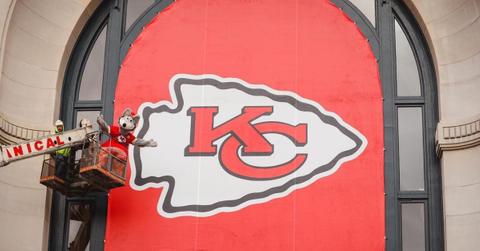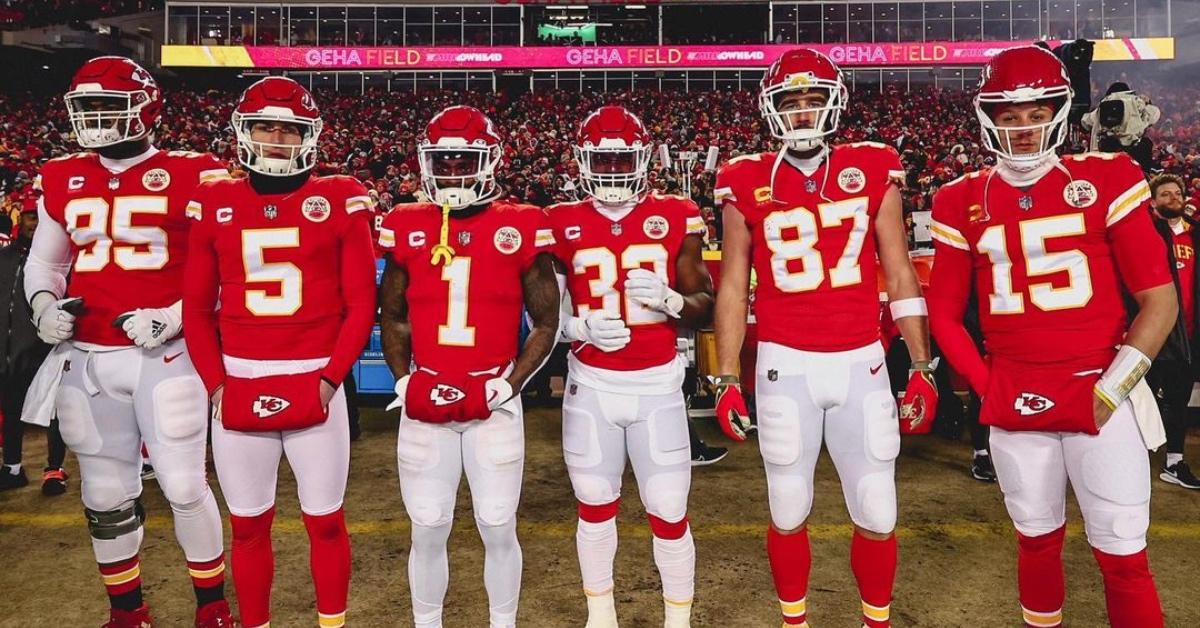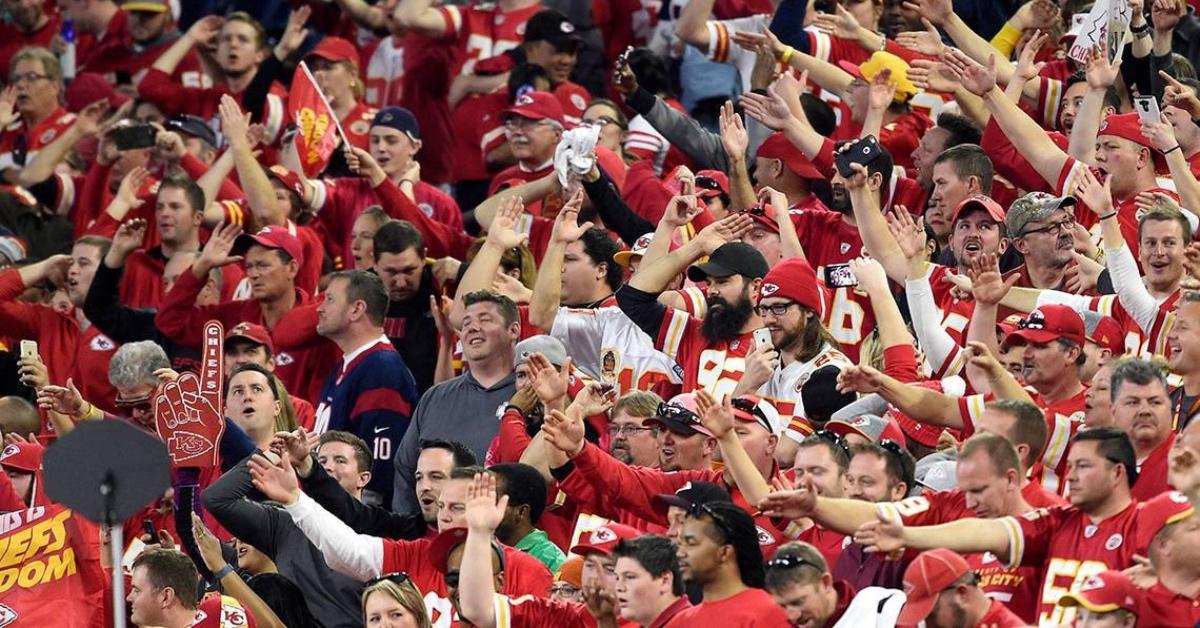Indigenous Groups Are Protesting the Kansas City Chiefs — Here's Why
Published Feb. 10 2023, 2:47 p.m. ET

As the Kansas City Chiefs football team gears up for Super Bowl LVII, many sports fans have taken a renewed interest in the game and its players. However, there is another reason the Kansas City Chiefs, in particular, are attracting attention this year.
Native American groups across the nation have asked sports teams, such as the Washington Commanders (formerly the Washington Redskins) and baseball team the Cleveland Guardians (formerly the Cleveland Indians), to change their team names and mascots to reduce harm and cultural appropriation.
Let's unpack the controversy behind the Kansas City Chiefs mascot, team name, and fan behavior.

Here's the controversy behind the Kansas City Chiefs mascot, explained.
The Kansas City football team initially started as the Dallas Texans, but changed when the team moved to Kansas City in 1963, according to the Associated Press. The football team name was chosen for the city's white mayor at the time, Mayor Harold Roe Bartle, who allegedly received permission from the Northern Arapaho people. The name was based on a nickname of Bartle's, which was reportedly "the Chief."
Chiefs president Mark Donovan recently claimed to the AP that the team "documented tribal officials confirming" permission to use what Indigenous activists have called a culturally appropriative team name. The Native American–led social justice organization IllumiNative, for example, released an Instagram post on Feb. 9, 2023, calling out the use of Native imagery appropriated by the football team.
In 2013, the Kansas City Chiefs created the American Indian Community Working Group, a group of Native American advisers serving to promote tribal culture and discourage cultural appropriation. A 2016 report from the AP suggested that the group was working more closely with Chiefs management to observe American Indian Heritage Month.
The Kansas City Chiefs previously had a pinto horse mascot named Warpaint, who was switched out for a character named K.C. Wolf. The horse mascot was brought back in 2009, but in 2021, The New York Times reported that the team retired the mascot because "it was the right thing to do." Unfortunately, the Chiefs mascot isn't the only act of cultural appropriation surrounding the team.
In 2020 the Chiefs formally banned fans from wearing headdresses and Native American face paint inside Arrowhead Stadium, a practice that had been happening for years. In a statement, the organization said moving forward, "While we have discouraged fans from wearing headdresses for several years, effective immediately, fans will be prohibited from wearing headdresses into the stadium."
Additionally, the statement read, "Face painting is still allowed for all fans, but any face paint that is styled in a way that references or appropriates American Indian cultures and traditions will be prohibited."
Finally, the Chiefs did address the "Tomahawk Chop," a fan-created gesture deemed racist by Native American groups. Activists coined the hashtag #StopTheChop to discourage the gesture, but so far, the Chiefs' only solution has been to encourage fans to change the open-palmed gesture to a closed fist.

Kansas City Chiefs fans performing the "Tomahawk Chop" in the audience.
Now that the Chiefs are going to the Super Bowl once more, there has been renewed protest over the team name itself, which is considered racist and appropriative. Activist Rhonda LeValdo, leader of Kansas City–based group Not In Our Honor, explained to the AP, "People are trying to be really positive about Kansas City and what it does and how like ‘Yes, sports binds us all together.'"
She explains that for Indigenous peoples, "It’s not bringing our people into this celebration together. Really, it’s hurting us more because now it’s the bigger spotlight where you’re seeing this all over the world." Rhonda will be part of a group protesting outside of the State Farm Stadium in Arizona, where the Super Bowl will be held in 2023.
In response, Mark Donovan told the AP he respects the group's right to protest.